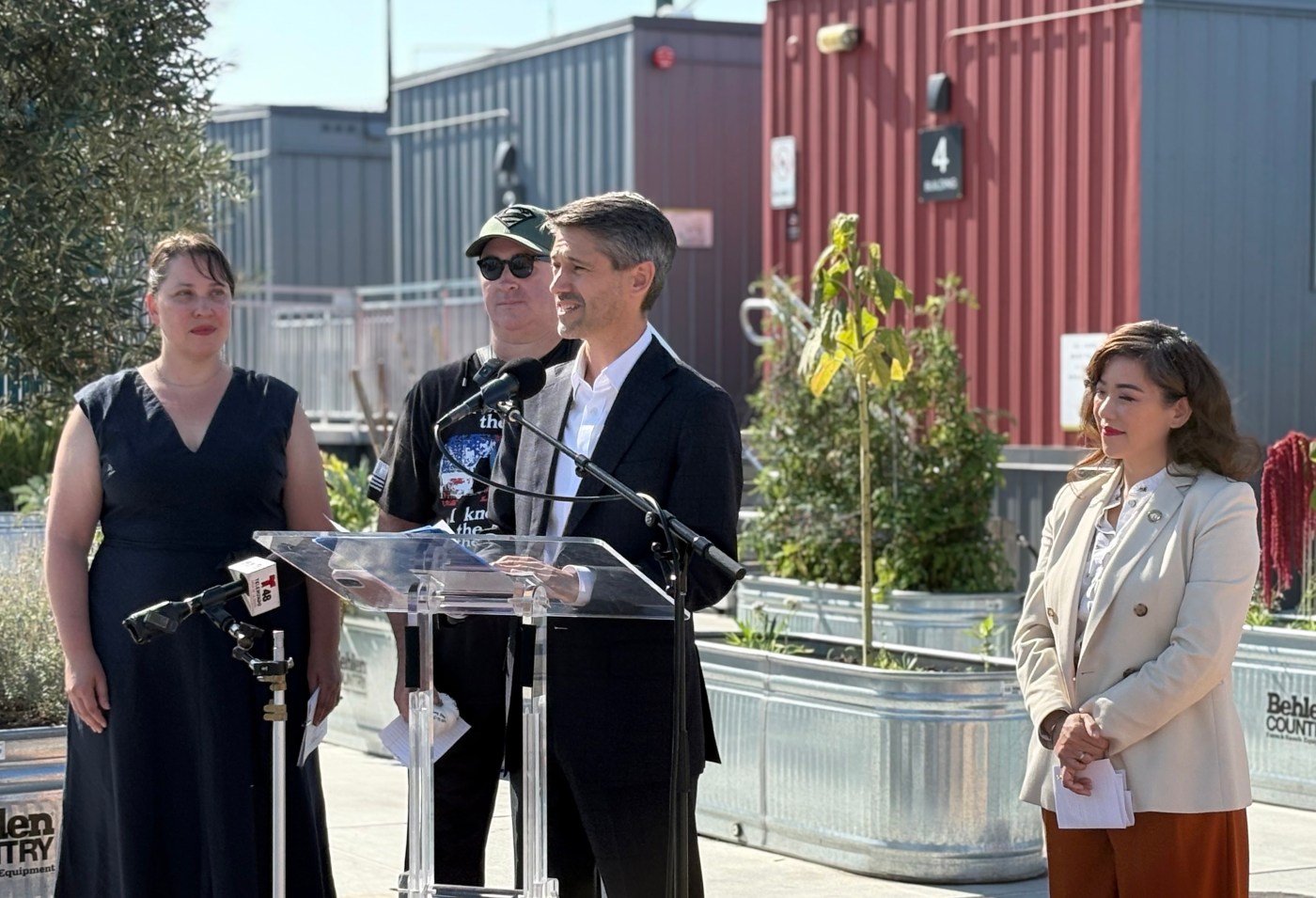
Following acrimony between San Jose and Santa Clara County earlier this year over the best approach to getting thousands of unhoused residents off the streets, a new proposal from Supervisor Betty Duong — which has the backing of Mayor Matt Mahan — would expand county health services at the city’s interim housing sites and better integrate the jurisdictions’ process for getting people into permanent homes.
“We know our current approach isn’t enough as more people in our community continue to struggle with rising housing costs, creating instability and homelessness,” Duong said at a press conference on Friday announcing the initiative.
The proposal offers a three-pronged strategy for a better partnership between the city and the county. If approved by the Board of Supervisors next Tuesday, county officials will work to expand their role in providing physical and mental health services at San Jose-funded shelters, interim housing, and safe parking sites. The proposal would continue to expand behavioral health bed capacity and integrate the city’s shelter system into the county’s processes for getting people into permanent supportive housing.
“It provides access to services — and not just on the service’s terms, but in a way that really meets folks where they are,” said Anat Leonard-Wookey, the vice president of programs and services at the nonprofit LifeMoves.
Mahan, who earlier this year called on the county to “step up their efforts” in addressing the homelessness crisis, called the proposal a “great step in the right direction.”
Since becoming mayor in 2023, Mahan has focused on utilizing more interim solutions as part of an effort to achieve “functional zero,” which is when the number of people exiting homelessness is more than those entering. The mayor has also been vocal about the need for more mental health and substance use treatment beds — an area that typically falls under the county’s responsibility as a provider of health services.
Roughly 60% of the county’s homeless population resides in San Jose, according to the latest point-in-time count. Between the last count in 2023 and the one conducted in January, San Jose saw a 10% decrease in its unsheltered population amid its efforts to increase the city’s interim housing capacity.
“I’m excited that we’re shifting the conversation from pointing out the lack of collaboration, the lack of integration and all the deficiencies to taking concrete steps towards solving those problems,” Mahan told The Mercury News.
For Wolfe Cevorov — a formerly homeless San Jose resident better known by the moniker “Roadman,” living at one of the city’s interim housing sites gave him a “sense of stability.” In May, the former roadie for the band Smash Mouth moved into his own apartment.
“There are so many people in our community who just need the same opportunity, a safe place and a little support to get back on their feet,” he said, backing Duong’s proposal.
But the initiative comes at a time when the county is facing budgetary challenges, particularly around health care services. The county is expected to lose out on roughly $1 billion annually in federal revenues because of cuts to Medicaid and other critical funding streams in President Donald Trump’s budget bill.
Both Mahan and Duong see the challenges ahead when it comes to funding.
Mahan criticized political leadership in Washington D.C. and Sacramento that he said aren’t “focused on the community’s top concerns and figuring out how to enable and hold local government accountable for solving the problems.”
“When they pull back and blame the localities and they stop providing funding and they don’t provide accountability, they abdicate their responsibility and make it far less likely that we will actually achieve the outcomes our shared constituents are demanding,” the mayor said.
For Duong, her proposal means that the county might need to get creative with its budgeting.
“There’s an opportunity here to take our work to the next level, to close the gaps that exist for our most vulnerable residents in the face of this humanitarian crisis that continues to grow every day,” she said. “I can’t let the federal threats to our budget stop us or slow down progress.”